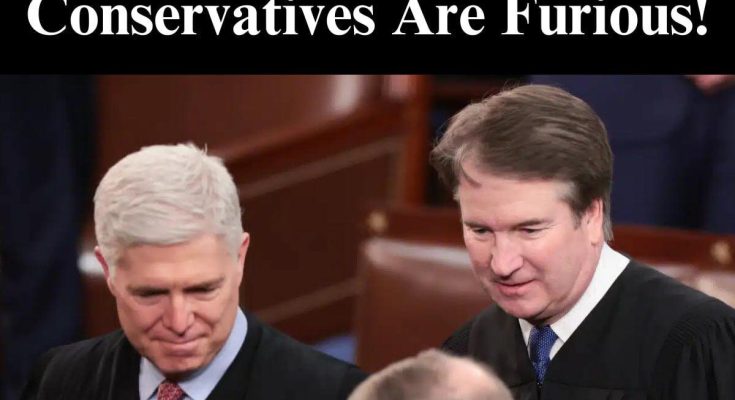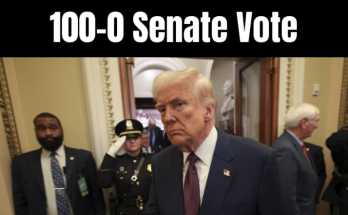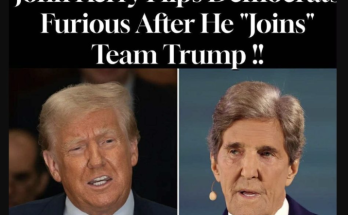The U.S. Supreme Court upheld federal rules from the Biden administration on “ghost guns” on Wednesday, which are mail-order kits that let people make weapons that can’t be tracked at home. This was a rare win for gun control groups at the conservative high court.
The opinion was written by Justice Neil Gorsuch for a 7-2 majority that included both liberal and conservative justices. This was one of the most closely watched Supreme Court cases of the year, CNN reported.
“Perhaps a half hour of work is required before anyone can fire a shot,” Gorsuch wrote. “But even as sold, the kit comes with all necessary components, and its intended function as instrument of combat is obvious. Really, the kit’s name says it all: ‘Buy Build Shoot.’
People who bought the guns and a few of the companies that made them challenged the rules put in place by the Biden administration in 2022. These rules say that companies that make “ghost guns” have to put serial numbers on the kits and check the backgrounds of people who buy them.
The Bureau of Alcohol, Tobacco, Firearms, and Explosives made the new rules because police say that guns that can’t be tracked are showing up at crime scenes a lot more often. In 2017, police sent about 1,600 “ghost guns” found at crime scenes to be tracked down. After four years, there were more than 19,000 of them.
In his opinion, Gorsuch said that Americans’ views on guns have changed a lot since the Gun Control Act was passed by Congress in 1968.
“Recent years, however, have witnessed profound changes in how guns are made and sold,” Gorsuch wrote.
In 1968, the milling equipment and materials needed to make a gun at home were far too expensive for most individuals.
“With the introduction of new technologies like 3D printing and reinforced polymers, that is no longer true,” Gorsuch said. “Today, companies are able to make and sell weapon parts kits that individuals can assemble into functional firearms in their own homes.”
Even though it wasn’t about the Second Amendment, the case brought guns to the attention of the high court at a time when its 6-3 conservative majority has become more strict on gun laws.
A conservative majority on the Supreme Court overturned a ban on bump stocks last year. These are devices that can turn semi-automatic rifles into weapons that can fire hundreds of rounds per minute.
But there were signs that some conservative judges on the court did not agree with the majority’s view on this case as they did on the one about bump stocks. That the justices agreed with the Biden administration on its emergency docket gave us a hint of what they thought before the arguments even started. By a vote of 5-4, the court decided to keep the rule in place while the case went on.
Gun makers and dealers are required by a law from 1968 to do background checks, keep sales records, and put serial numbers on all guns they sell. As long as the kits are legal, the ATF said during the Biden administration. The agency said the kits could be quickly put together to make working guns. The rule doesn’t say that the kits can’t be sold or owned, but it does say that buyers must have serial numbers and their backgrounds checked.
People can buy kits for ghost guns online and put together a fully functional gun at home. People who are against them say that because they don’t need background checks or serial numbers, they are appealing to people who aren’t allowed to buy guns normally.
In his dissent Wednesday, Conservative Justice Clarence Thomas wrote thatthe majority “blesses the Government’s overreach.” Thomas said he reads the federal law at issue in a much narrower way that does not cover “the unfinished frames and receivers contained in weapon parts kits.”
“Congress could have authorized ATF to regulate any part of a firearm or any object readily convertible into one. But, it did not. I would adhere to the words Congress enacted,” Thomas wrote.
Several conservatives on the court and all of its liberals seemed skeptical of the idea that the kits were made for gunsmithing hobbyists during oral arguments in October. It wasn’t taken seriously by Chief Justice John Roberts or anyone else that building the kinds of gun kits in question was like working on an old car. To put it another way, he seemed to say that the kits aren’t made with hobbyists in mind.
“Drilling a hole or two, I would think, doesn’t give the same sort of reward that you get from working on your car on the weekends,” Roberts said to the lawyer representing the kit manufacturers. “My understanding is that it’s not terribly difficult for someone to do this.”
Lawsuits were filed by advocacy groups and five companies that make the kits, saying that the rule was illegal. They said the kits aren’t weapons but rather parts. The Texas US district court threw out the rule, and the mostly conservative 5th US Circuit Court of Appeals agreed with them.



